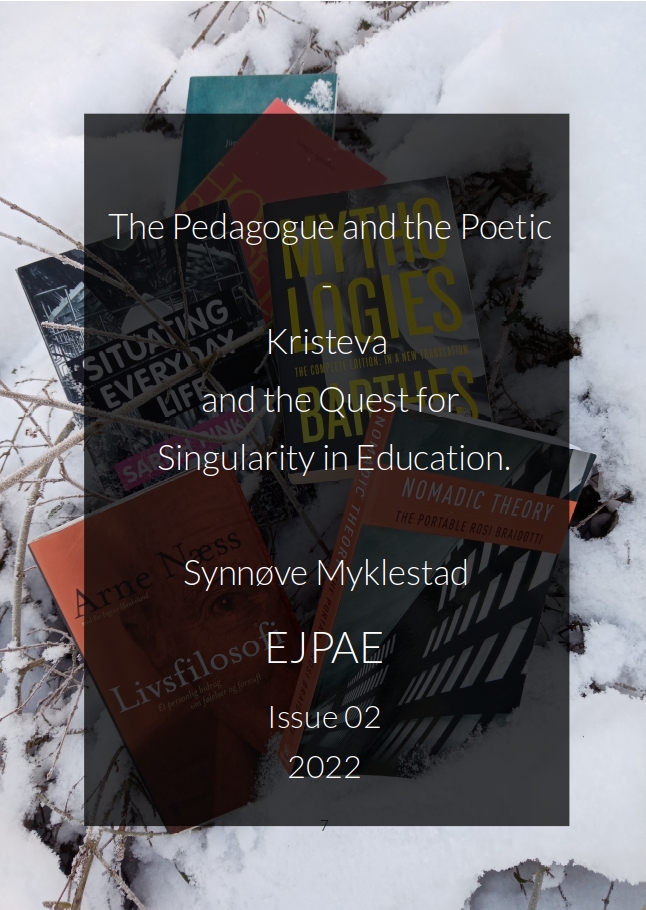The Pedagogue and the Poetic
Kristeva and the Quest for Singularity in Education.
DOI:
https://doi.org/10.5281/zenodo.7451812Keywords:
Singularity, Transubstantiation, Subject-in-process, language, subject, semiotization, semiotic disposition, word-creation, Kristeva, KhlebnikovAbstract
In this article, I argue that Julia Kristeva’s concepts of semiotization and transubstantiation may contribute both to an understanding of the way in which the human subject might realize itself, and to the way in which educational institutions may serve as keepers of such a notion of humanity. To focus the human subject is urgent in a time of various neo-liberal pressures – including the area of education. Mechanisms of effectivization and standardization in education are unable to bring forth the singularity of the human being. Inspired by the Russian Futurists and their word-creation, I follow up on the theoretical discussion with a classroom exercise for students, that potentially provides them with a space to begin the process of exploring (regaining) their semiotic selves and their potential to experience and share human singularity.

Downloads
Published
Issue
Section
License
Copyright (c) 2022 Synnøve Myklestad

This work is licensed under a Creative Commons Attribution 4.0 International License.
EJPAE provides immediate open access to all its published content. Users do not need to register or pay to read content.
https://creativecommons.org/licenses/by/4.0/
Authors of content published in European Journal of Philosophy in Arts Education (EJPAE) retain the copyright to their works. Content is free to be used by anyone as long as you "[...] give appropriate credit, provide a link to the license, and indicate if changes were made. You may do so in any reasonable manner, but not in any way that suggests the licensor endorses you or your use." and "No additional restrictions — You may not apply legal terms or technological measures that legally restrict others from doing anything the license permits." (from the Creative Commons licence agreement)
EJPAE does not charge any author or publication fees.
Authors are encouraged to deposit the final published version of their article for self-archiving (author's personal website) and/or archiving in an institutional repository immediately upon publication.




